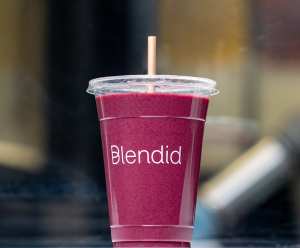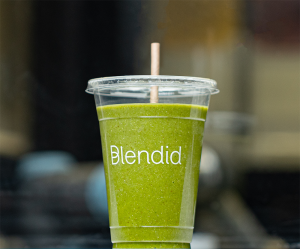We all value our health, and that’s never more true than during a public health emergency like the one we currently face. During stressful times like these, we want to treat our bodies well and do everything in our power to maintain our health. While the concept of “being healthy” differs for everyone, we generally take it to mean exercising regularly and consuming nourishing foods while moderating other elements known to negatively impact health (such as alcoholic beverages, nicotine, pollution, and stress).
Stress may be inevitable due to the current state of the world. However, we can still focus on other internal and external factors, including our microbiome. Recent research suggests that the bacteria and other microorganisms in our gut — which make up a significant portion of our microbiome — can significantly impact our health. Let’s dive into why gut bacteria matters. Plus, we’ll discuss some of the steps we can take to improve the good bacteria in our gut (thus improving our health overall).
Why the microbiome matters
While the word “microbiome” sounds scientific and complex, it simply refers to the trillions of microorganisms that live in and on our bodies. These microorganisms include bacteria and fungi, as well as viruses, and they’re an essential part of how our bodies function. In fact, microorganisms are so important that our bodies actually contain more bacterial cells than human cells. These cells help perform critical tasks such as regulating the immune system, digesting food, and protecting against disease-causing bacteria.
Often you’ll hear mention of the “gut microbiome”, because our gut contains the majority of those trillions of microorganisms. The bacteria in our gut are unique from other microorganisms that live elsewhere in and on us, and are believed to help regulate our bodily health. The latest scientific studies suggest that a healthy gut microbiome helps to keep you healthy and better equipped to fight off illness. Likewise, the gut microbiome has been linked to a variety of diseases such as diabetes, autism, obesity, anxiety, and even insomnia. As a result, the foods we consume play an important role in our gut health.
How to eat for a healthy microbiome
Many of us know that we inherit genes from our parents, and these genes contain different traits that determine how we look, our behaviors, and even some of the diseases we carry. Now researchers believe that we also inherit part of our microbiome from our mothers. However, unlike genes, we have the ability to alter our microbiome — particularly our gut bacteria — through the food we consume. By eating nutritious foods containing prebiotics and probiotics, we can actually change the composite of our microbiome!
Prebiotics and probiotics both help us maintain a healthy microbiome, though each has a different role. Probiotics are beneficial microorganisms including bacteria and yeast that exist in fermented foods like yogurt, kefir, kimchi, and sauerkraut. Meanwhile, prebiotics act as food for probiotics, supplying fiber that keeps microorganisms (especially the ones in our gut) healthy. Another name for prebiotics is fiber, which is naturally found in fruits, vegetables, whole grains, and legumes.
The key to keeping gut bacteria healthy is to eat a diverse diet that includes a variety of fiber-containing plant foods as well as fermented foods. While probiotic supplements may also deliver some benefit, they’re not a sufficient substitute for eating well. Consuming foods that naturally include prebiotics and probiotics as part of our diet is the best and most reliable way to deliver the nutrients our microbiome needs.
Drink a smoothie, improve your gut
Smoothies are an excellent way to efficiently consume both prebiotics and probiotics. Of course, the effectiveness of the smoothie will depend on the ingredients. Incorporating foods like yogurt or kefir provides beneficial bacteria, while adding a mix of fruits and vegetables (such as berries, banana, kale, and other leafy greens), seeds/nuts, and even whole grains delivers the prebiotics necessary to fuel those bacteria.
At Blendid, our blends are great for the gut, with some that are particularly beneficial for a healthy microbiome. We’ve included recipes for two of our favorites — Berry Ultraviolet and Undercover Kale — below that contain only five ingredients each and will make your gut microbiome happy. If you try out one of our recipes (or create your own version), please tag us on social media and let us know how it worked out!
Note: Don’t have some of the ingredients? Feel free to substitute! (Strawberries for blueberries, spinach for kale, etc.)
 Berry Ultraviolet — Blueberry, banana, kefir, apple juice, chia
Berry Ultraviolet — Blueberry, banana, kefir, apple juice, chia
Makes one smoothie, about 12 ounces
- Banana (frozen, chopped): ½ banana
- Blueberry (frozen): 1 cup
- Kefir, plain unsweetened (or yogurt): ¼ cup
- 100% Apple juice: ¾ cup
- Chia seeds: 1 teaspoon
 Undercover Kale – Kale, mango, coconut water, flax, ginger
Undercover Kale – Kale, mango, coconut water, flax, ginger
Makes one smoothie, about 16 ounces (or two 8 ounce smoothies)
- Kale (frozen): 1 cup
- Mango (frozen, chopped): 1 cup
- Coconut water: 1 to 1 ½ cups
- Flaxseed: 1 teaspoon
- Ginger (optional): ½ to 1 teaspoon
- Agave or honey (optional): As desired
To prepare:
- Add all ingredients to a blender and blend for 20 to 40 seconds (depending on the blender). If ingredient quantity has a range, start with the lower amount and add more as needed.
- Any ingredients can be adjusted to your desired taste or texture preferences!
Follow Blendid on Instagram @myblendid for more blend recipes. You can also find Kristen on Instagram @rootedfood.


